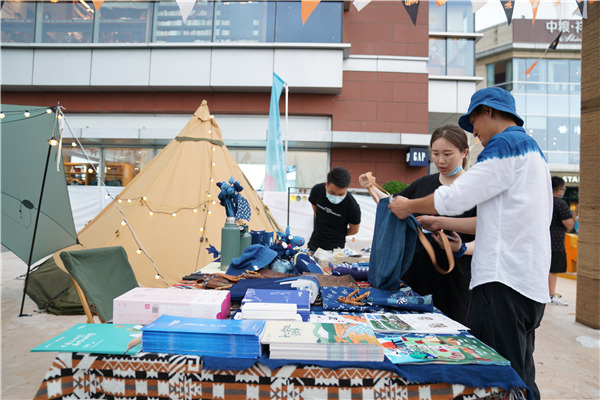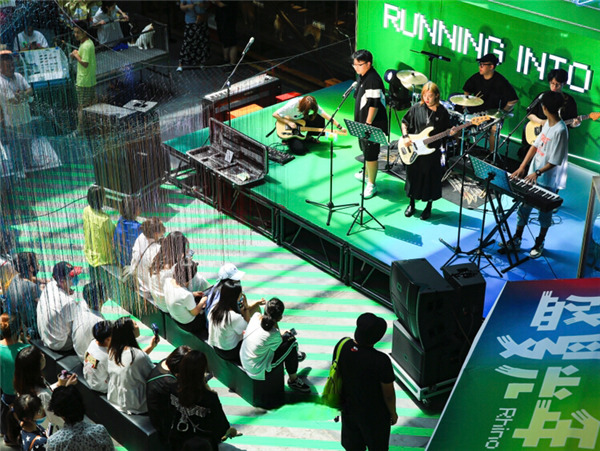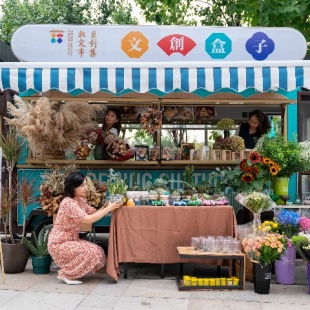Giving culture fair play


"A lot of visitors expressed strong interest in what's behind the… products."
The Shine Hills fair is the first of such several cultural and creative events the capital city will host to carry forward culture, encourage innovation and boost artistic consumption, the local government says.
It also offers opportunities to develop relevant industries.
"We received good feedback from exhibitors, who said they'd met 'seed users', who may become customers in the future," Li says.
Beijing staged another cultural fair in its downtown Wangfujing shopping area in August, after the Shunyi event. And more will be staged this year, Beijing authorities say.
As COVID-19 prevention and control continues to improve in China, a growing number of people are willing to leave their homes to re-experience the comfort and leisure of cities.
Several government bodies, including the Ministry of Commerce, recently proposed the promotion of small-shop businesses.

Tourist attractions and neighborhoods are encouraged to court visitors by offering unique, distinctive and historical local experiences. More support will be provided for food, bar, tea and culture streets.
Culture and tourism departments across the country have rolled out measures to offer quality cultural and creative fair experiences to satisfy public demand and boost industry recovery.
Shenyang, capital of Northeast China's Liaoning province, has also hosted various cultural and creative fairs. The city's Rhino Market resumed operations in early August, offering thousands of products.
The city inaugurated the fair in 2013. It offers catering, handicrafts and cultural displays.
"The number of booths at the Rhino Market has come to exceed 1,200, compared with 40 at the beginning," says Wang Han, an official with the 1905 Cultural and Creative Park, where the fair was held.





































